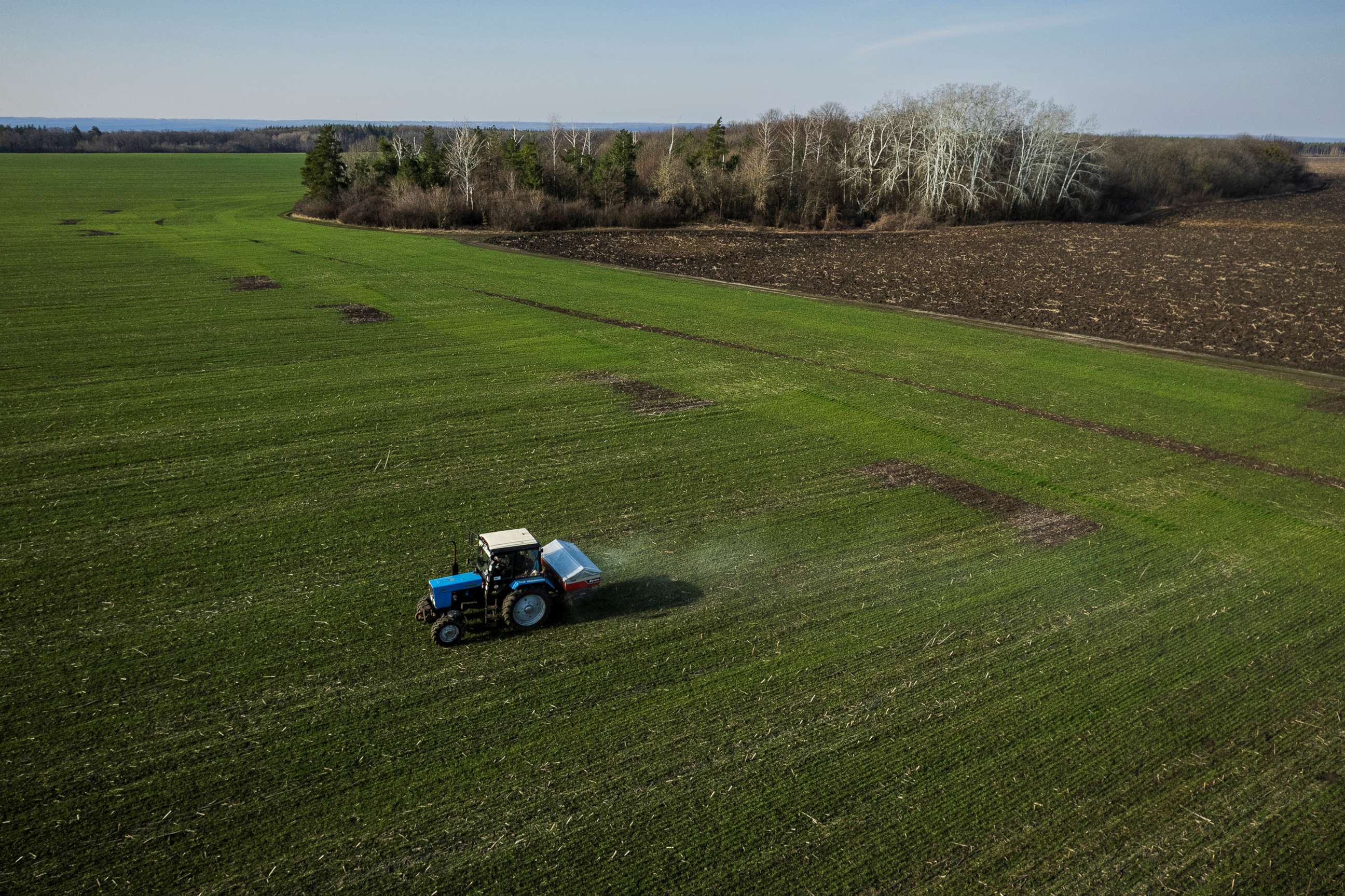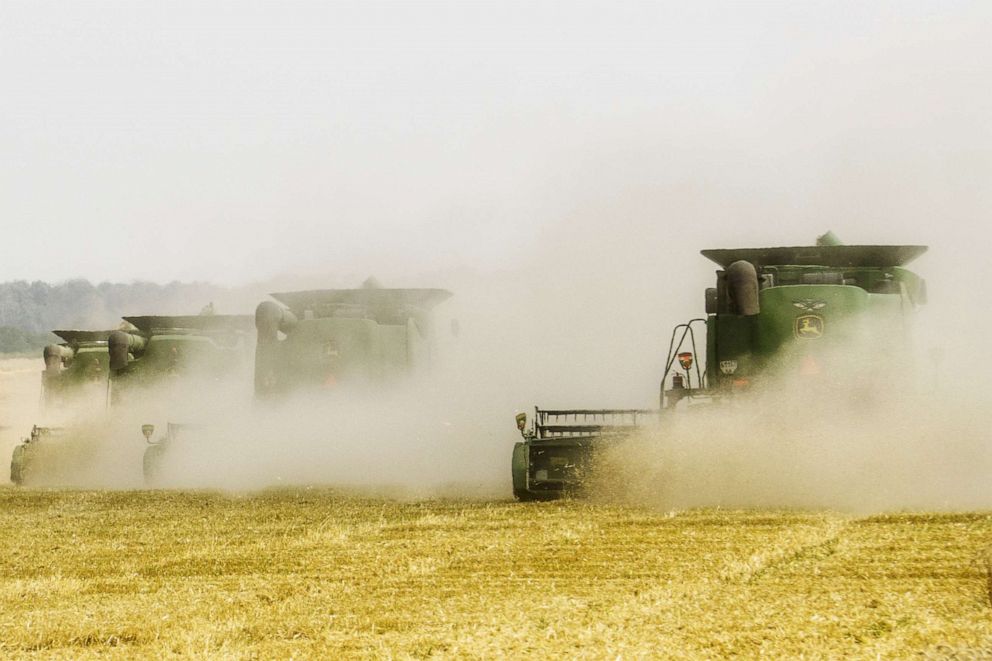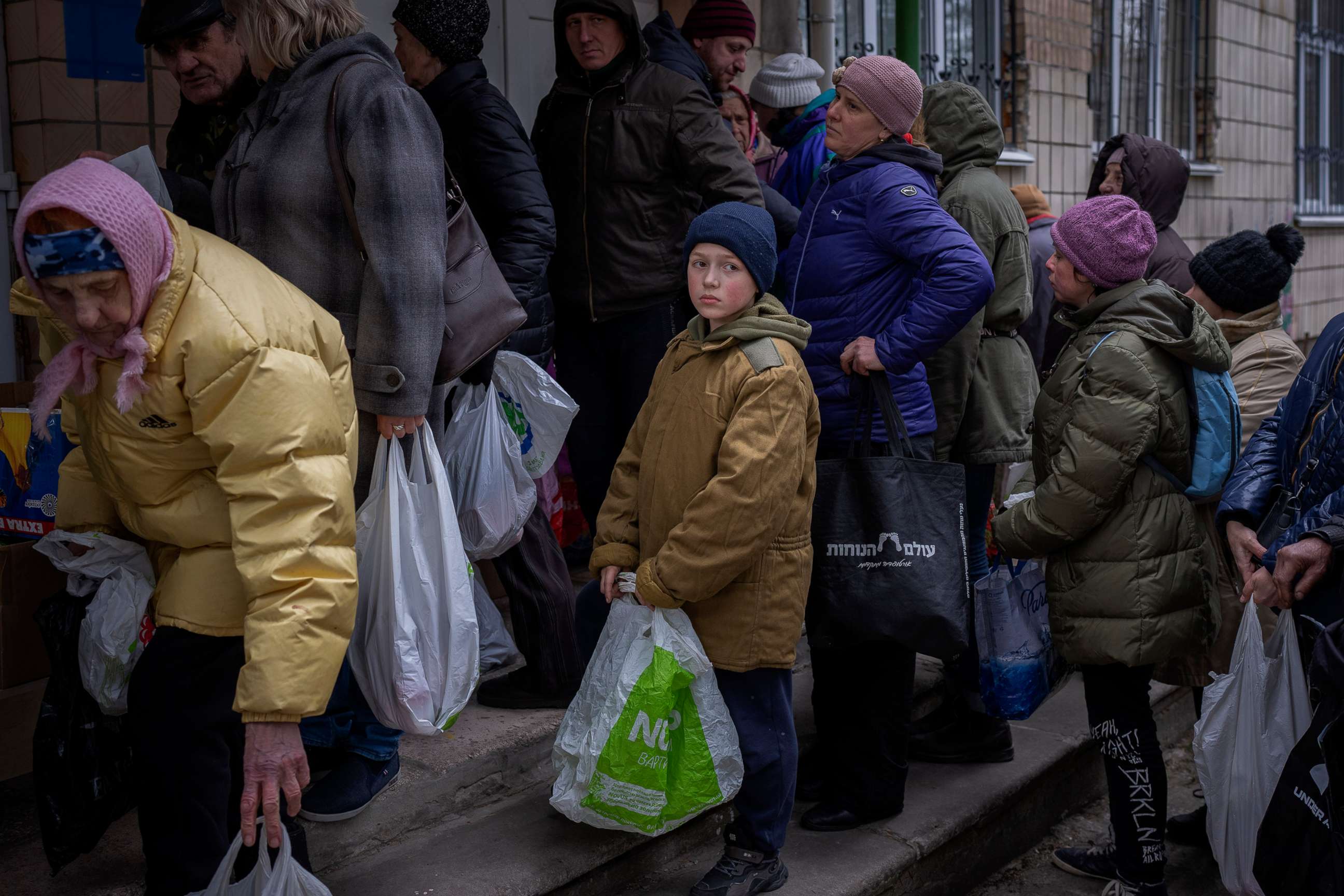Ukraine war could plunge millions into malnutrition if global powers don't intervene, experts say
Failure to act may result in "an increase in child deaths in the coming months."
Russia's invasion of Ukraine will have rippling effects in populations far outside the two countries in conflict -- especially in the global food supply, experts are warning.
The war in Ukraine could plunge millions into malnutrition if governments, donors and funders do not act now to prevent a shortage of the nutritional staples typically exported out of the region, according to an op-ed published Thursday in Nature.
Women and children in low- and middle-income countries are particularly vulnerable, according to the op-ed, which was authored by 10 nutrition and food supply experts from all over the world. The nutritional needs of children are high, relative to their body size, and women's nutritional needs are especially high when pregnant and breastfeeding.
"Impacts of malnutrition might be less immediately visible than those of hunger. But left untreated, they can be multi-generational and irreversible," the authors wrote.
The biggest concern is the long-term implications malnutrition will have on children, Saskia Osendarp, executive director of the Micronutrient Forum and co-coordinator of Standing Together for Nutrition, a consortium of nutrition, economics, food and health system experts, told ABC News. This could include cognitive development, school performance, and, later in life, social capital and the increased risk of chronic diseases, she said.

Nutrient deficiencies, particularly in the first 1,000 days in a child's life -- beginning from conception and lasting until the child's second birthday -- can have "irreversible, lifelong consequences," Osendarp said.
Existing gender inequality and power imbalances -- which are often exacerbated during crises -- result in women having less agency to direct resources toward feeding themselves and their children, the experts said. Increased prices, the reduced availability of food or difficulties accessing it will directly affect the quality of people's diets, and increased prices and trade problems will reduce the reach of humanitarian services that prevent and treat acute malnutrition, the experts said.
When food prices increase, households switch to cheaper staple foods and processed foods instead of buying more nutritious -- and generally more expensive-- foods, such as fruits, vegetables, dairy meat, decreasing the quality of their diets, Osendarp, one of the authors of the op-ed, said.
"So they may be able to cope and to to keep their caloric intakes at a level to some point, but then they will suffer from nutrient deficiencies," she said.
In addition, budgets currently devoted to improving people's nutritional status could be redirected to other, more urgent needs as a result of the war, according to the op-ed.
The World Food Programme estimated that in 2022, 323 million people would be in urgent need of assistance when it comes to obtaining sufficient food and nutrients.
Ukraine is considered on one of the breadbaskets of the world and is a top 10 global exporter of a number of key agricultural products, including wheat, barley, corn, sunflower oil, soybeans and poultry. An estimated 70% of the country is used for farmland -- land that is currently being devastated by assaults by Russian forces.

Countries in Africa and the Middle East are particularly vulnerable, while Somalia and Benin have a total dependence on imports of mostly Russian and Ukrainian wheat, according to a rapid assessment by the United Nations Conference on Trade and Development. Several countries rely on Russia and Ukraine for more than half their wheat imports.
The number of malnourished people, especially women and children, is expected to increase as a result of record-high price hikes and disruptions in the trade of food, fertilizer and fuel, according to the paper.
Cities such as Odessa and Mariupol, where about 70% of Ukraine's exports are moved from, have now been blocked due to incessant Russian shelling, according to USAID.
This is not an isolated crisis, Osendarp said. Two years into the pandemic, governments are still recovering from the global economic stressors of the virus as well as climate change-related events, such as severe droughts in the Horn of Africa, as well as increased conflict in other war-torn regions, such as Ethiopia and in Yemen, she said.
The authors called for the cessation of trade restrictions that affect access to nutrition and for the use of social protection measures, such as food or cash transfers, specifically tailored to address malnutrition. Protection of financial commitments already made for nutrition, both within nations and globally, and increased investment in humanitarian resources beyond the promises already made will also be necessary, they said.

Without an immediate humanitarian response, it is almost guaranteed that the numbers of malnourished children and mothers will increase and will affect generations to come, Osendarp said.
"It will affect millions and millions of mothers and children, and we can just simply not afford to lose that generation," she said.
ABC News' Guy Davies and Dragana Jovanovic contributed to this report.




